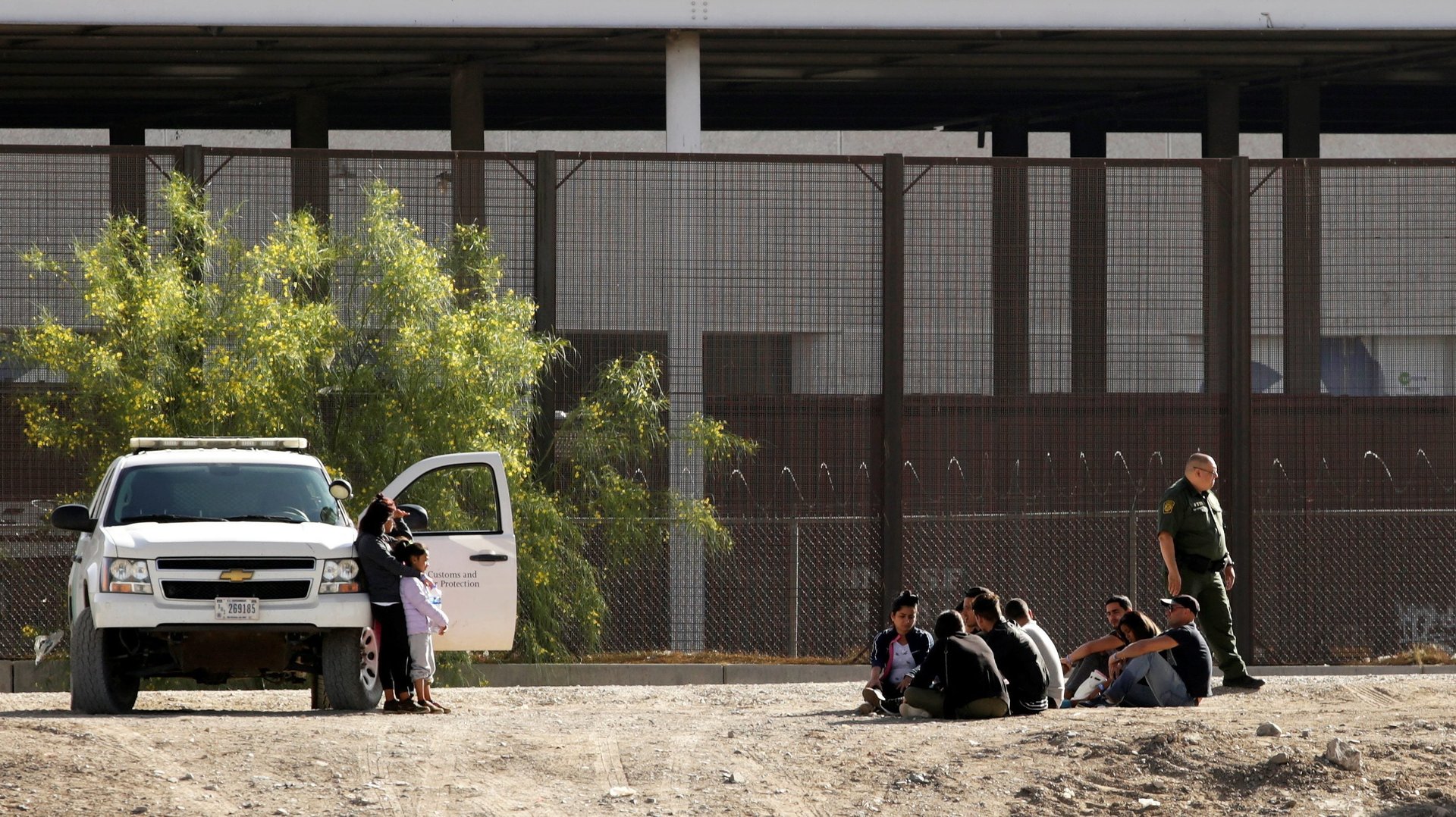Trump administration now wants asylum seekers to wait a full year before seeking work
Nearly eight months after US president Donald Trump issued an edict to “restore integrity” to the American immigration system, authorities are attempting to make it more difficult for asylum seekers to earn a living.


Nearly eight months after US president Donald Trump issued an edict to “restore integrity” to the American immigration system, authorities are attempting to make it more difficult for asylum seekers to earn a living.
Presently, asylum seekers can apply for a work permit 150 days after requesting asylum, and permission can be granted 30 days after that. In an announcement last week, the US Department of Homeland Security (DHS) said it now plans to double that wait to a full year. Asylum requests can often take years to be granted.
The proposed change, if enacted, would affect approximately 300,000 people each year. A separate proposal would raise the fee for a work permit application from $0 to $490. Unlike many signatories to the UN’s 1951 Refugee Convention, the United States does not provide those requesting asylum with a monthly subsistence allowance. Germany, by comparison, provides asylum seekers with about $400 a month for living expenses while their cases are processed.
Maureen Dunn, the chief of DHS’s Division of Humanitarian Affairs, did not respond to a request for comment.
The plan follows a Trump administration bid to exclude immigrants from entering the United States who it believes might later need public assistance, and comes on the heels of a White House scheme to make asylum seekers pay steep processing fees, which would make the United States one of only four countries—Fiji, Iran, and Australia—to do so. Trump himself has complained about those fleeing persecution or violence at home making “fraudulent or meritless asylum claims to gain entry into our great country.” Immigration advocates say this portrayal is not only inaccurate but immoral, and that the administration is simply trying to make the lives of asylum seekers as difficult as possible.
“The proposal is part and parcel of this administration’s efforts to block as many immigrants as possible from coming to the US, even if they have—like asylum seekers [do]—the legal right to do so,” Susan Collins, director of policy and advocacy at the nonprofit National Partnership for New Americans, told Quartz. “As long as people and their children are in danger, they will seek refuge in the United States because they have no choice. And if you deny people the ability to work to support themselves and their families, you increase the suffering of already traumatized people, place a strain on state and local communities to fill the gap, and force people underground to work in exploitative situations without a permit just to buy food and pay rent.”
Beyond making life harder for asylum seekers, the new restrictions on working legally could create other problems. By its own admission, DHS says that the policy change could impact low-wage workers already working in the country and the profits of companies that depend on them.
“There may also be a reduction in state and local tax revenue,” the department wrote in its assessment of the policy. “Budgets and assistance networks that provide benefits to asylum seekers could be impacted negatively if asylum applicants request additional support.”
The proposed rule is now in the midst of a 30-day comment period, during which the public can weigh in. So far, fewer than two dozen comments have been posted to the federal government’s website. One commenter said he was writing to express his opposition to the intended rule change as “an immigration lawyer, a patriot, and the proud son of a refugee.”
“The…announcement emphasizes the need to ‘safeguard our system against rampant abuse of our asylum process,’” the commenter wrote. “In my 26 years practicing solely immigration law, I have encountered not one alien who applied for asylum in order to secure employment authorization. Not one. Ever.”
A small minority of commenters expressed support, parroting Trump’s hardline stance.
The proposed rule change is the latest in an ongoing effort by the Trump administration, led by anti-immigrant senior adviser Stephen Miller, to reduce asylum admissions to an all-time low. Trump’s so-called “zero tolerance” policies have resulted in the detention of tens of thousands of asylum seekers, including thousands of children who have been separated from their families. Detention centers are now dangerously overcrowded as overwhelmed immigration courts struggle to keep up with the caseload. The Department of Justice was recently accused of improperly deleting nearly one million immigration records, a charge it denies.
“We’ve come to understand that every day it’s a new thing,” Collins said. “I am missing that evil creativity to be able to imagine what they will come up with next. But it’s clear they will do everything in their power to end asylum—and the overall immigration of people historically beckoned by the Statue of Liberty.”